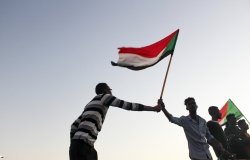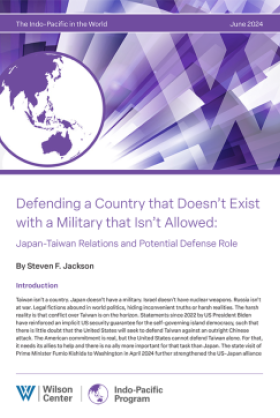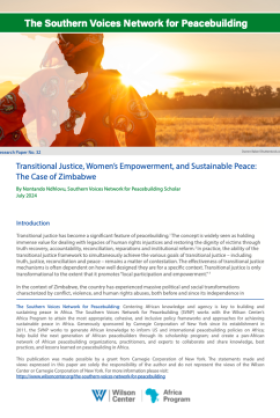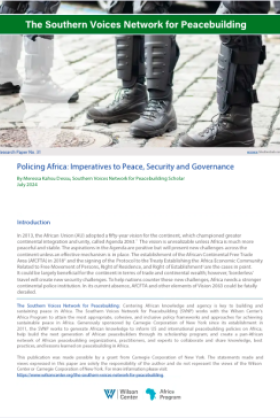Smart Take | Blinken in Israel; Netanyahu Determined to Launch Rafah Offensive
Secretary of State Antony Blinken is in the Middle East now, working with counterparts to lay the groundwork for a ceasefire and figure out how to rebuild Gaza after the war. Another important issue driving the trip is Israel’s upcoming ground offensive into Rafah, which US leadership believes is a mistake. James Jeffrey, Chair of the Wilson Center's Middle East Program, provides insights on US and Israeli objectives, Ambassador Dermer’s upcoming trip to Washington, what is at stake in the negotiations, and the role that Iran is playing in the backdrop.
Video Transcript
Blinken in Israel; Netanyahu Determined to Launch
This transcript has been lightly edited for clarity.
The administration here in Washington is very concerned about a major operation driving up and dramatically civilian casualties and undercutting humanitarian delivery, which relies upon the Rafah crossing for most assistance that's coming in. Thus, next week, Prime Minister Netanyahu's key adviser. Ambassador Dermer is coming to Washington to talk to National Security Advisor Jake Sullivan and other US officials to try to determine if there is a way to do this operation, thus meeting Israeli security concerns, which are very important, while also avoiding a major civilian loss.
The jury is still out on whether both sides are willing to sincerely negotiate and come up with a compromise. President Biden is under pressure simply to stop the Israeli operation, period, and end the killing of civilians, inadvertent or not. And the Israelis are under tremendous pressure to finish off Hamas. And Prime Minister Netanyahu has repeatedly said over the last few days after talking about this with President Biden on Monday, that he is going to go forward with the offensive. But what that means, when that will happen, and how much it will accommodate US interests is still up in the air.
The other thing is President Biden realizes that this isn't just about the Israelis and Hamas in Gaza. This is about Iran and its surrogates in the whole region. We keep on forgetting about this when thinking about the compelling issues of civilian casualties, humanitarian delivery, and, of course, the Israeli hostages. These are all compelling stories that we must pay attention to. But the bigger issue is Iran has been running roughshod through this region, mainly through its proxies. We see this with the Houthis and the Red Sea right now against international shipping for almost 20 years. It is extremely important that there be significant pushback that requires a strong Israel and a strong Israel requires continued American defense delivery.
Guest
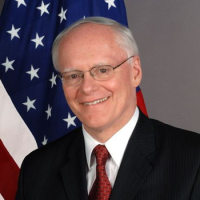
James F. Jeffrey
Former ambassador to Iraq and Turkey, and Special Envoy to the Global Coalition To Defeat ISIS
Hosted By

Middle East Program
The Wilson Center’s Middle East Program serves as a crucial resource for the policymaking community and beyond, providing analyses and research that helps inform US foreign policymaking, stimulates public debate, and expands knowledge about issues in the wider Middle East and North Africa (MENA) region. Read more


